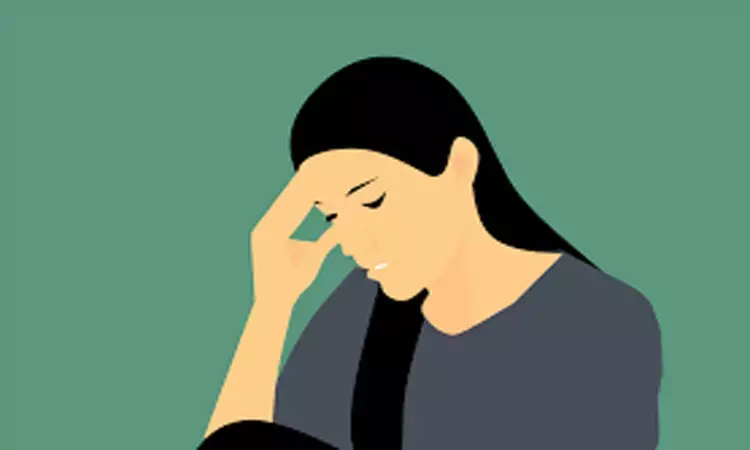- Home
- Medical news & Guidelines
- Anesthesiology
- Cardiology and CTVS
- Critical Care
- Dentistry
- Dermatology
- Diabetes and Endocrinology
- ENT
- Gastroenterology
- Medicine
- Nephrology
- Neurology
- Obstretics-Gynaecology
- Oncology
- Ophthalmology
- Orthopaedics
- Pediatrics-Neonatology
- Psychiatry
- Pulmonology
- Radiology
- Surgery
- Urology
- Laboratory Medicine
- Diet
- Nursing
- Paramedical
- Physiotherapy
- Health news
- Fact Check
- Bone Health Fact Check
- Brain Health Fact Check
- Cancer Related Fact Check
- Child Care Fact Check
- Dental and oral health fact check
- Diabetes and metabolic health fact check
- Diet and Nutrition Fact Check
- Eye and ENT Care Fact Check
- Fitness fact check
- Gut health fact check
- Heart health fact check
- Kidney health fact check
- Medical education fact check
- Men's health fact check
- Respiratory fact check
- Skin and hair care fact check
- Vaccine and Immunization fact check
- Women's health fact check
- AYUSH
- State News
- Andaman and Nicobar Islands
- Andhra Pradesh
- Arunachal Pradesh
- Assam
- Bihar
- Chandigarh
- Chattisgarh
- Dadra and Nagar Haveli
- Daman and Diu
- Delhi
- Goa
- Gujarat
- Haryana
- Himachal Pradesh
- Jammu & Kashmir
- Jharkhand
- Karnataka
- Kerala
- Ladakh
- Lakshadweep
- Madhya Pradesh
- Maharashtra
- Manipur
- Meghalaya
- Mizoram
- Nagaland
- Odisha
- Puducherry
- Punjab
- Rajasthan
- Sikkim
- Tamil Nadu
- Telangana
- Tripura
- Uttar Pradesh
- Uttrakhand
- West Bengal
- Medical Education
- Industry
Ubrogepant best treatment option for relieving mild migraine pain: Study

USA: A new study published in Neurology found that ubrogepant treatment against mild migraine pain resulted in greater pain relief, symptomatic outcome, and regaining of normal function two hours after administration.
For the short-term treatment of migraines, ubrogepant, an oral calcitonin gene-related peptide receptor antagonist, is being studied. In order to compare the effectiveness of ubrogepant in the treatment of migraine with mild pain with moderate or severe pain, Richard B. Lipton and colleagues carried out this study.
This 52-week extension trial was a phase-3, dose-blinded, open-label study. Adult migraine sufferers were randomized 1:1:1. (usual care, ubrogepant-50mg, or ubrogepant-100mg). Every four weeks, participants managed up to 8 migraine bouts with varying degrees of discomfort. Efficacy results (only gathered for ubrogepant) were freedom from 2-hour pain (2hPF), related symptom freedom, and disability freedom. In this post hoc analysis, the effect of baseline pain intensity on treatment outcomes was examined using a generalized linear mixed model with binomial distribution and a logit link function.
The key highlights of this study were:
1. There are details on 19,291 hits from 808 participants.
2. For attacks treated with ubrogepant-50mg when the pain was modest as opposed to moderate or severe, 2hPF rates were greater.
3. Following therapy for mild pain as opposed to moderate or severe pain, rates of relief from photophobia, phonophobia, and nausea 2 hours after treatment were similarly considerably greater.
4. For both ubrogepant dosages, the proportion of attacks with the normal function was more than twice as high at two hours.
5. Upper respiratory tract infection was the most frequent adverse event (11% of both dosages).
6. For ubrogepant-50mg and ubrogepant-100mg, respectively, 2% and 3% of patients experienced serious adverse effects.
"Treatment with ubrogepant during mild pain resulted in significantly higher rates of freedom from pain, freedom from associated symptoms, and achieving normal function two hours after administration relative to attacks treated with moderate or severe pain," the researchers conclude.
Reference:
Lipton, R. B., Dodick, D., Goadsby, P. J., Burstein, R., Adams, A. M., Lai, J., Yu, S. Y., Finnegan, M., Kuang, A. W., & Trugman, J. M. (2022). Efficacy of Ubrogepant in the Acute Treatment of Migraine With Mild Pain Versus Moderate or Severe Pain. In Neurology (p. 10.1212/WNL.0000000000201031). Ovid Technologies (Wolters Kluwer Health). https://doi.org/10.1212/wnl.0000000000201031
Neuroscience Masters graduate
Jacinthlyn Sylvia, a Neuroscience Master's graduate from Chennai has worked extensively in deciphering the neurobiology of cognition and motor control in aging. She also has spread-out exposure to Neurosurgery from her Bachelor’s. She is currently involved in active Neuro-Oncology research. She is an upcoming neuroscientist with a fiery passion for writing. Her news cover at Medical Dialogues feature recent discoveries and updates from the healthcare and biomedical research fields. She can be reached at editorial@medicaldialogues.in
Dr Kamal Kant Kohli-MBBS, DTCD- a chest specialist with more than 30 years of practice and a flair for writing clinical articles, Dr Kamal Kant Kohli joined Medical Dialogues as a Chief Editor of Medical News. Besides writing articles, as an editor, he proofreads and verifies all the medical content published on Medical Dialogues including those coming from journals, studies,medical conferences,guidelines etc. Email: drkohli@medicaldialogues.in. Contact no. 011-43720751


